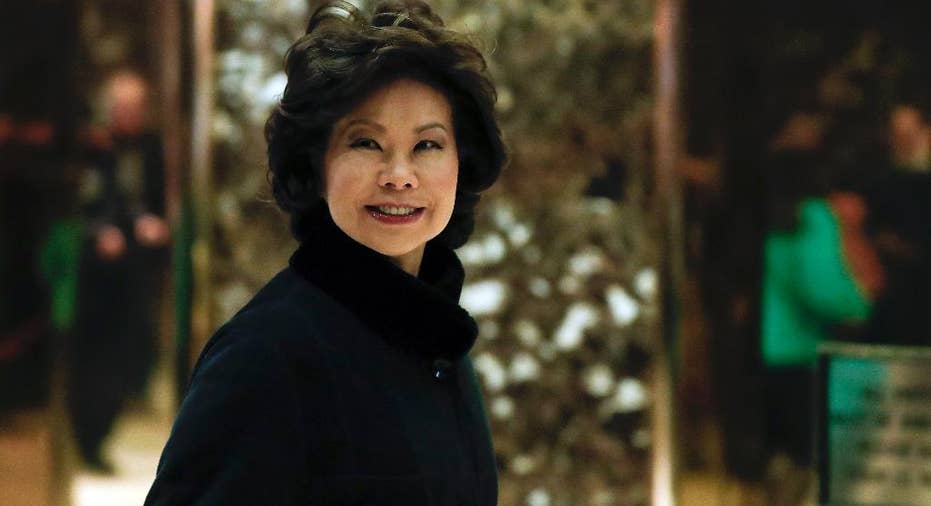Chao says private investors can help boost transportation

WASHINGTON – The Trump administration is looking to "unleash the potential" of private investors to boost the national transportation networks that underpin the U.S. economy, transportation secretary-designate Elaine Chao plans to tell lawmakers at her confirmation hearing Wednesday.
Economic gains are being jeopardized by infrastructure "in need of repair, the specter of rising highway fatalities, growing congestion, and by a failure to keep pace with emerging technologies," according to prepared testimony Chao plans to deliver to the Senate Commerce, Science and Transportation Committee.
Chao, 63, is expected to be easily confirmed by the Senate. She was labor secretary during George W. Bush's administration, and deputy transportation secretary under President George H.W. Bush, making her better known than some nominees. She is also the wife of Senate Majority Leader Mitch McConnell, and many senators have a personal relationship with her.
But she hasn't been immune from criticism. Unions say that as labor secretary she mostly sided with industry when enforcing labor and safety rules.
In her testimony, Chao advocates using "innovative financing tools" that can "take full advantage of the estimated trillions in capital that equity firms, pension funds and endowments can invest." She says private investment should be "incentivized with a bold, new vision."
She doesn't detail those incentives, but a paper written by two economic advisers to President-elect Donald Trump recommends providing $137 billion in tax credits to infrastructure investors. His advisers predict that will generate about $1 trillion in investment over 10 years.
But transportation experts note that investors are interested only in transportation projects that produce revenue, like toll roads, and there are relatively few large projects like that. They say states need help with a growing backlog of maintenance and repair projects for aging highways, bridges and transit systems. Providing tax incentives also runs the risk of providing a windfall to investors for projects that would have been built anyway.
Trump repeatedly promised during the campaign to spend $1 trillion on roads, bridges, railways, airports and other types of infrastructure. It's one of the principal ways he said he would create jobs. But he has said little about this since the election.
Republican congressional leaders have said they'll wait to see what Trump proposes before tackling an infrastructure bill. Trump has said he expects to be occupied early in his administration with cutting taxes and repealing President Barack Obama's health care overhaul. Infrastructure isn't expected to be dealt with until late spring.
As transportation secretary, Chao would be responsible for regulating auto, truck, train, transit, pipeline and aviation safety. The department frequently faces pressure from industry to relax safety rules and block new ones.
Chao, who has been a fellow at conservative think tank, is likely to lend a sympathetic ear to industry pleas for less regulation.
___
Follow Joan Lowy at http://twitter.com/AP_Joan_Lowy. Her work can be found at http://bigstory.ap.org/content/joan-lowy



















